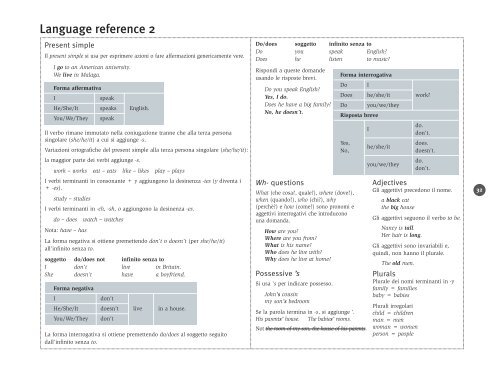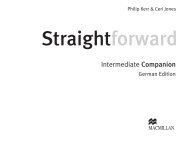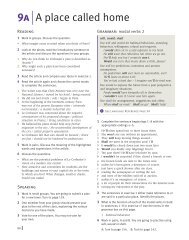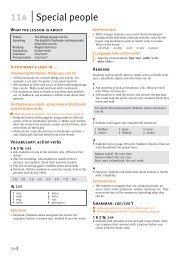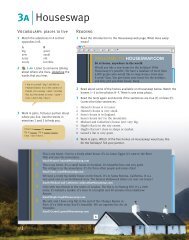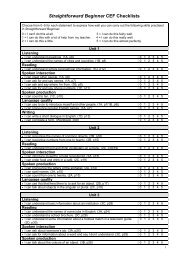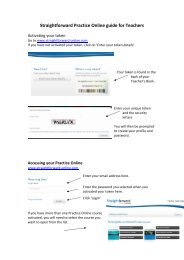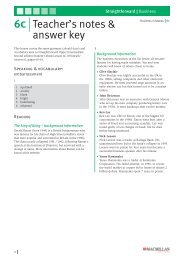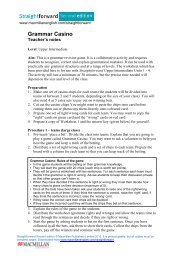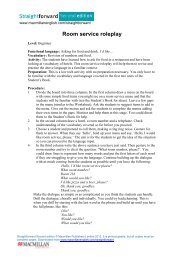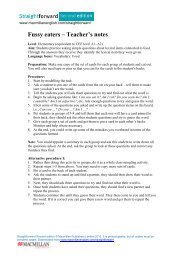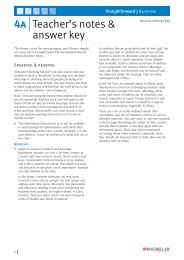Italian - Straightforward
Italian - Straightforward
Italian - Straightforward
- No tags were found...
You also want an ePaper? Increase the reach of your titles
YUMPU automatically turns print PDFs into web optimized ePapers that Google loves.
Language reference 2Present simpleIl present simple si usa per esprimere azioni o fare affermazioni genericamente vere.I go to an American university.We live in Malaga.Forma affermativaIspeakHe/She/It speaks English.You/We/They speakIl verbo rimane immutato nella coniugazione tranne che alla terza personasingolare (she/he/it) a cui si aggiunge -s.Variazioni ortografiche del present simple alla terza persona singolare (she/he/it):la maggior parte dei verbi aggiunge -s.work – works eat – eats like – likes play – playsI verbi terminanti in consonante + y aggiungono la desinenza -ies (y diventa i+ -es).study – studiesI verbi terminanti in -ch, -sh, o aggiungono la desinenza -es.do – doesNota: have – haswatch – watchesLa forma negativa si ottiene premettendo don’t o doesn’t (per she/he/it)all’infinito senza to.soggetto do/does not infinito senza toI don’t live in Britain.She doesn’t have a boyfriend.Forma negativaIdon’tHe/She/It doesn’t live in a house.You/We/They don’tLa forma interrogativa si ottiene premettendo do/does al soggetto seguitodall’infinito senza to.Do/does soggetto infinito senza toDo you speak English?Does he listen to music?Rispondi a queste domandeusando le risposte brevi.Do you speak English?Yes, I do.Does he have a big family?No, he doesn’t.Wh- questionsForma interrogativaDo IDoes he/she/it work?Do you/we/theyRisposta breveYes,No,What (che cosa?, quale?), where (dove?),when (quando?), who (chi?), why(perchè?) e how (come?) sono pronomi eaggettivi interrogativi che introduconouna domanda.How are you?Where are you from?What is his name?Who does he live with?Why does he live at home?Possessive ’sSi usa ’s per indicare possesso.John’s cousinmy son’s bedroomSe la parola termina in -s, si aggiunge ’.His parents’ house. The babies’ rooms.Not the room of my son, the house of his parents.Ihe/she/ityou/we/theydo.don’t.does.doesn’t.do.don’t.AdjectivesGli aggettivi precedono il nome.a black catthe big houseGli aggettivi seguono il verbo to be.Nancy is tall.Her hair is long.Gli aggettivi sono invariabili e,quindi, non hanno il plurale.The old men.PluralsPlurale dei nomi terminanti in -yfamily = familiesbaby = babiesPlurali irregolarichild = childrenman = menwoman = womenperson = people32


